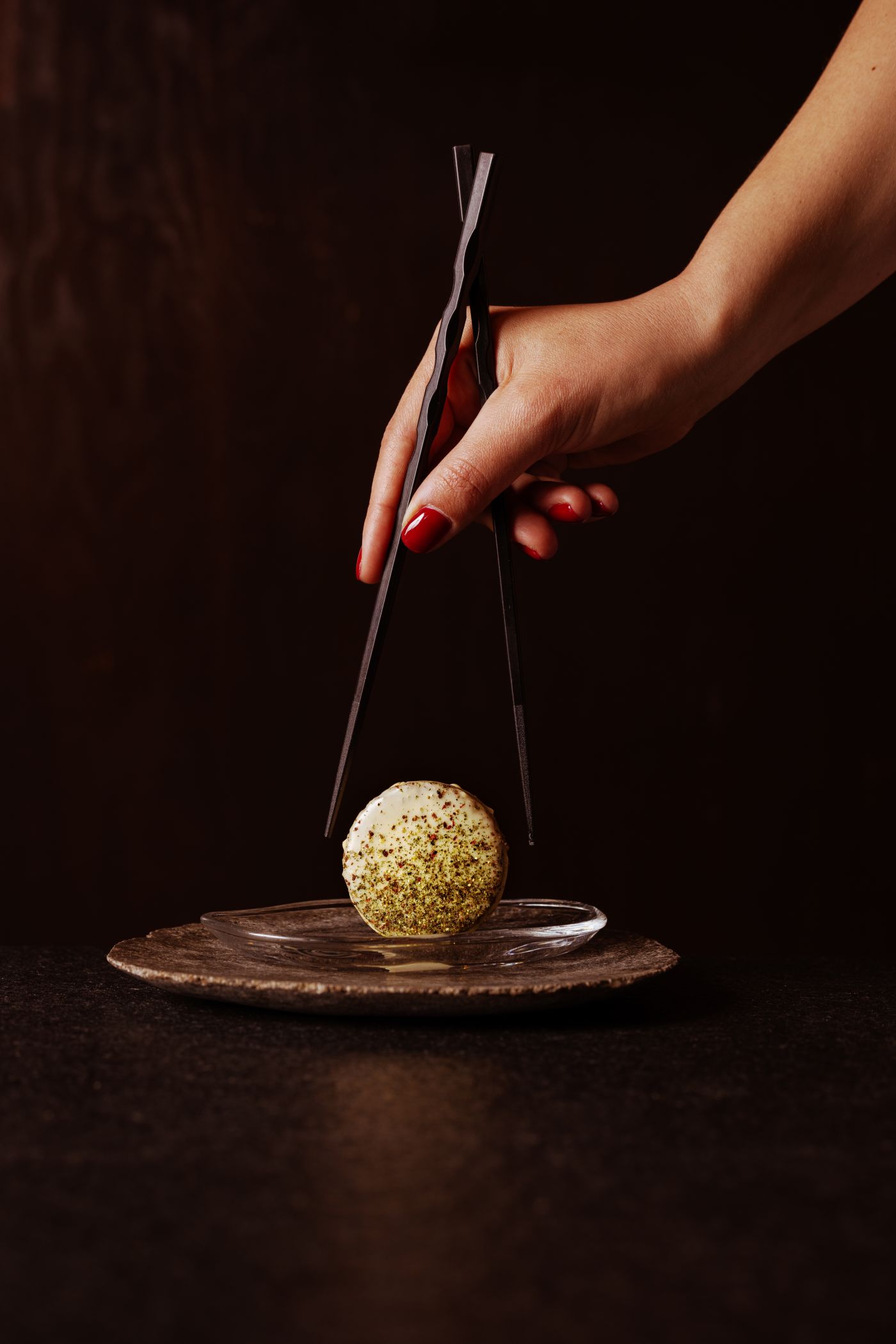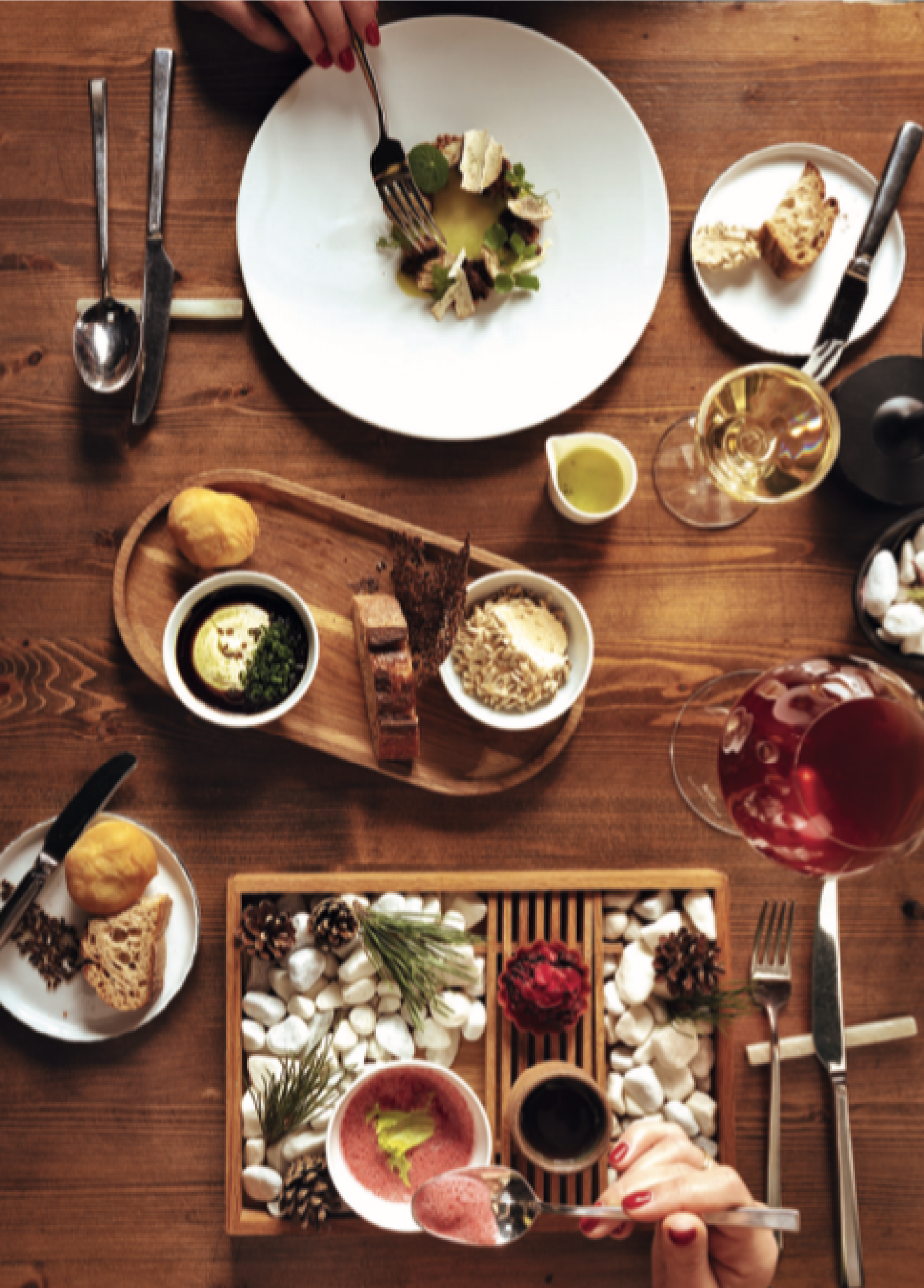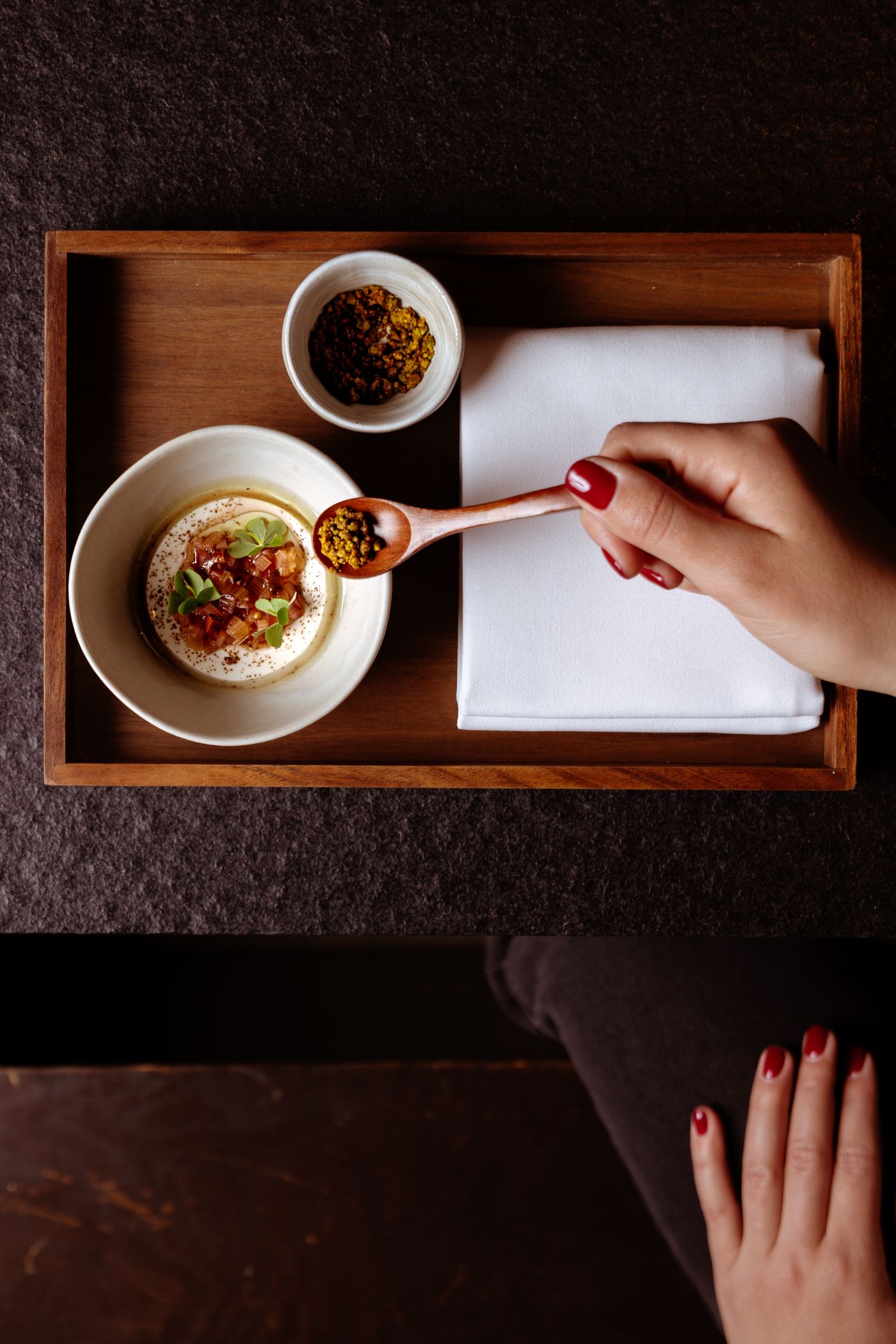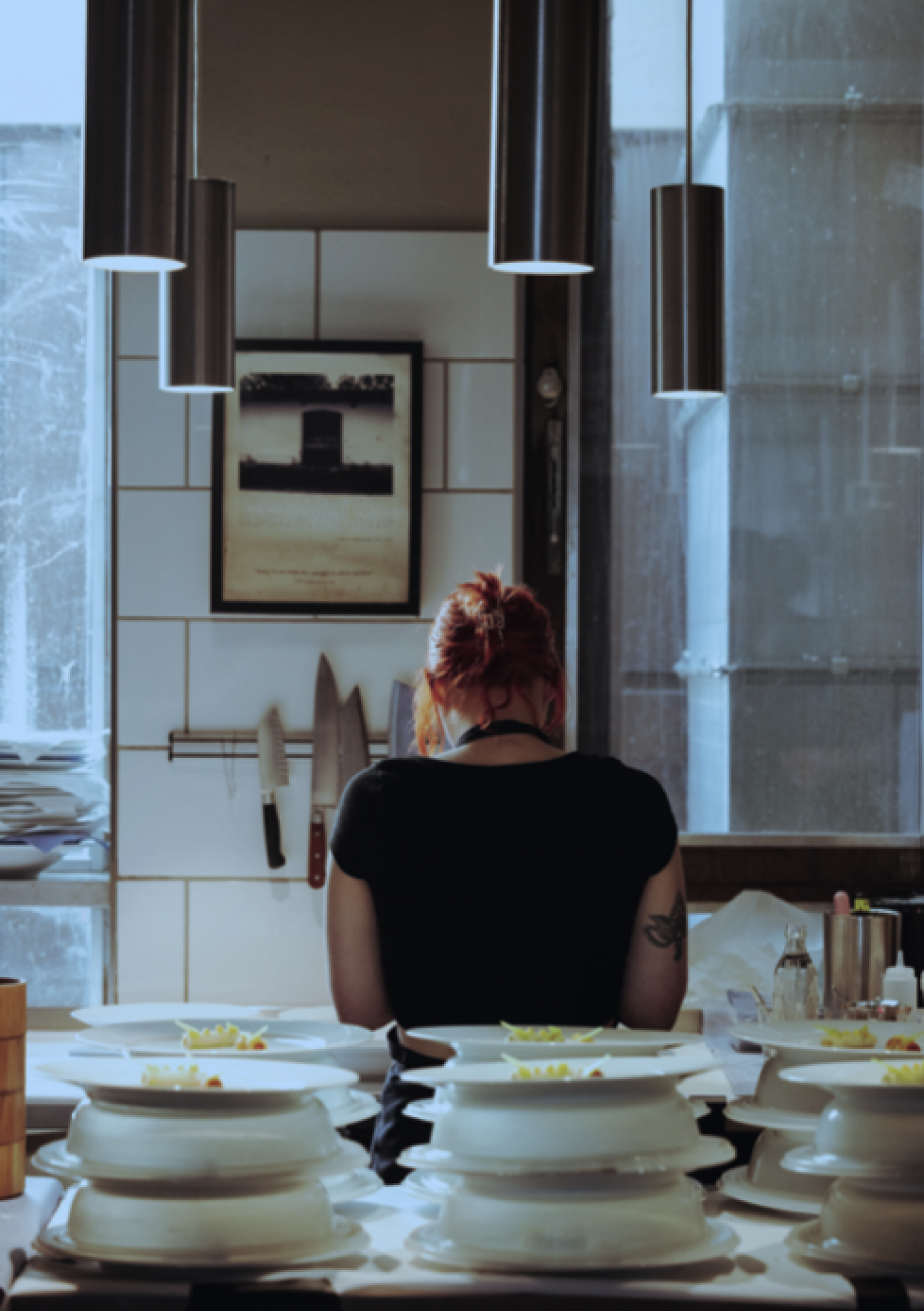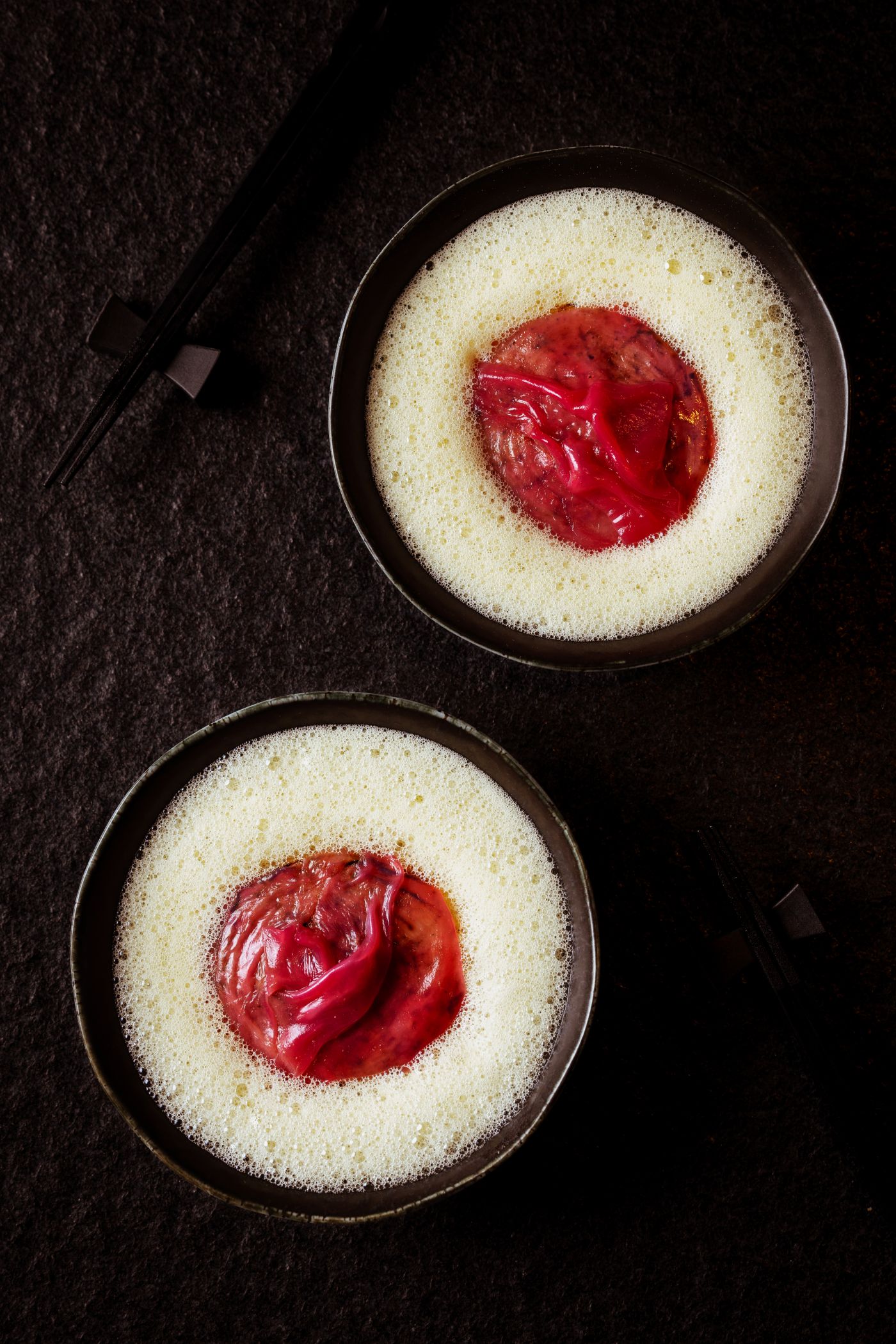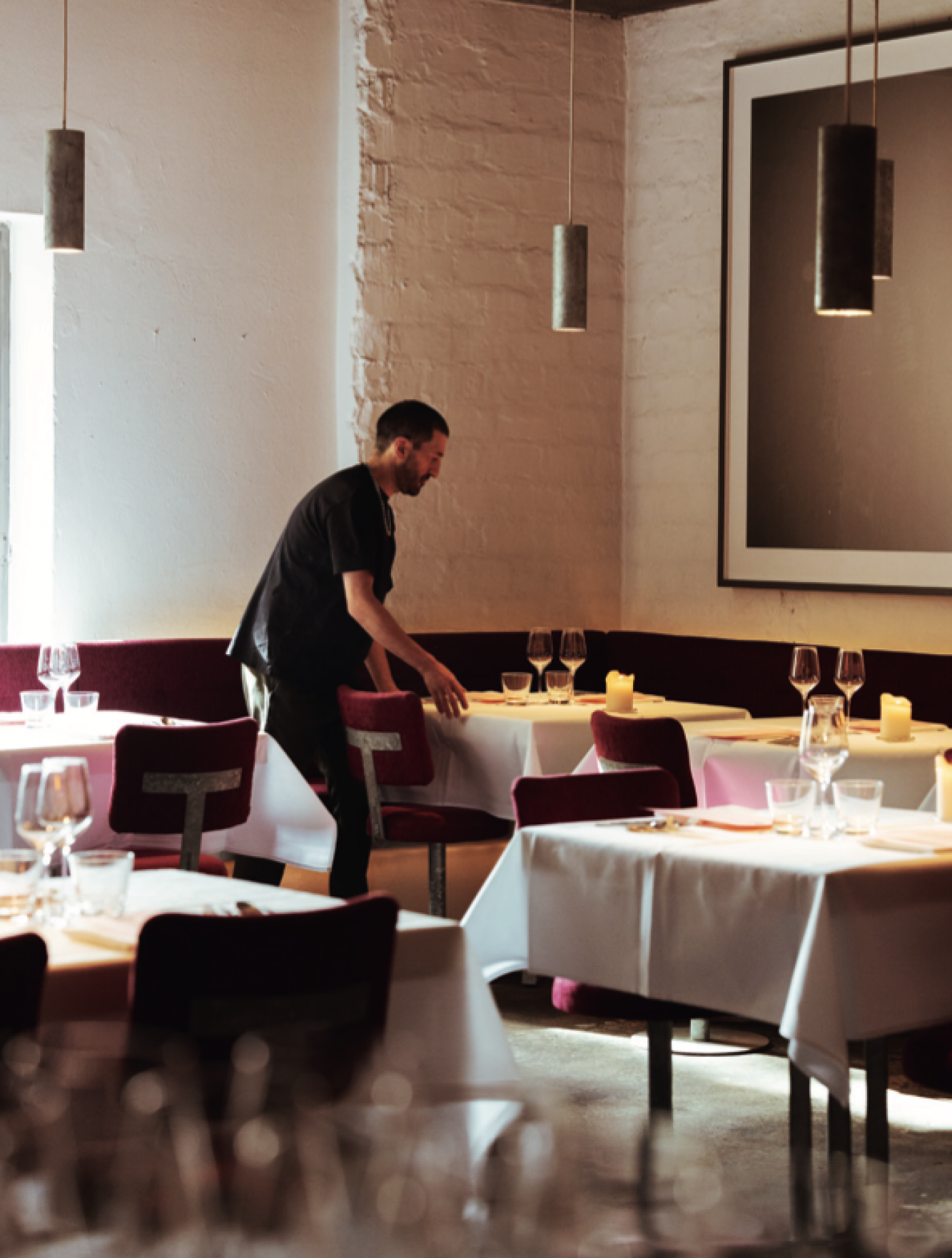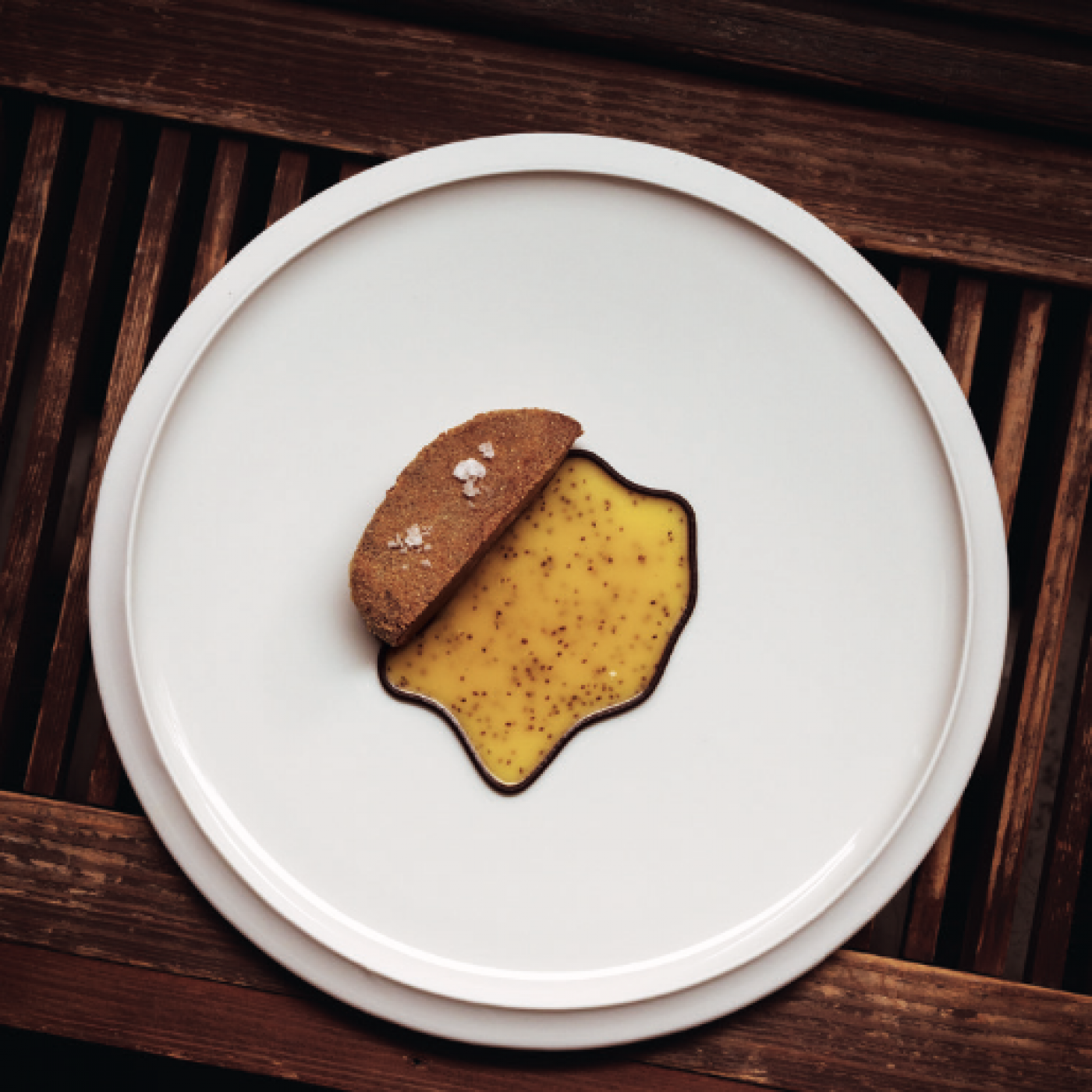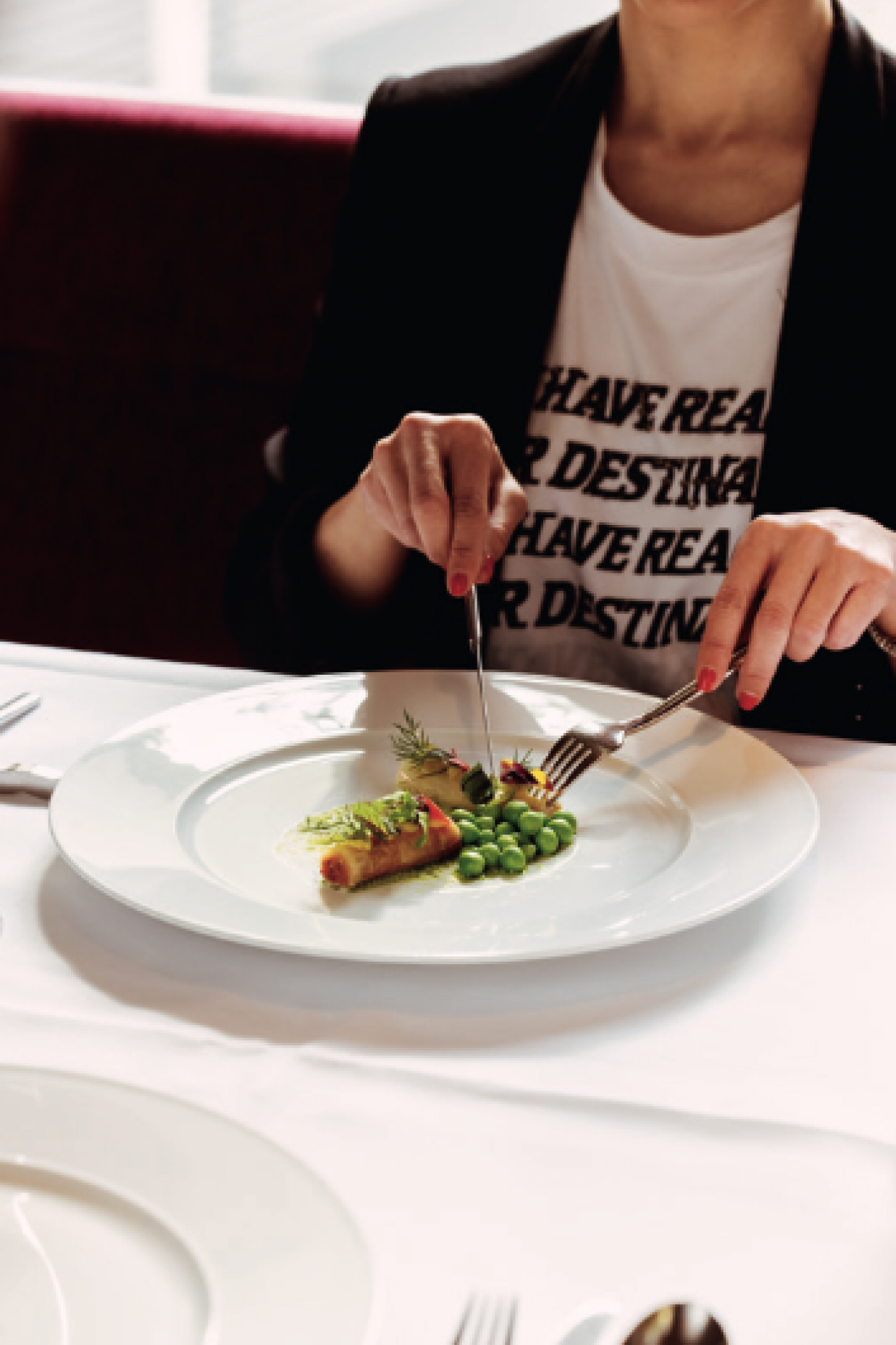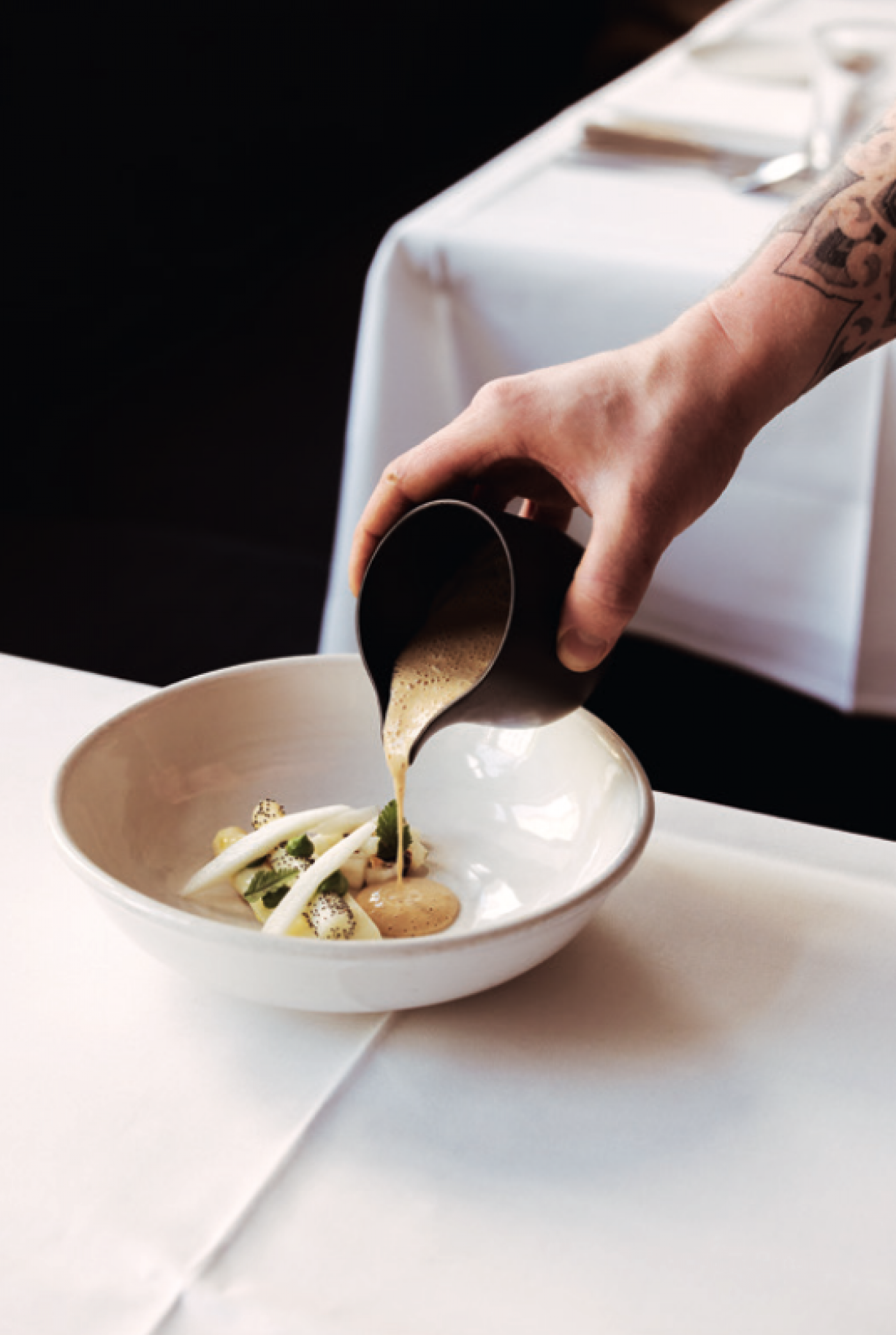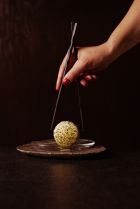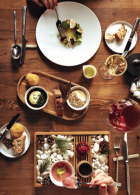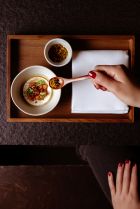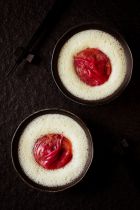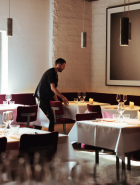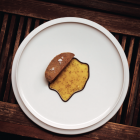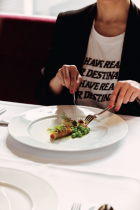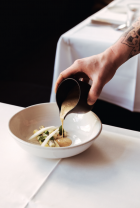
Food and Travel Review

Berlin, long celebrated for its counterculture spirit and artistic innovation, has become an unlikely epicentre of a new revolution – plant-based fine dining. Once a city synonymous with sausages, schnitzel and weissbier, its culinary landscape has evolved into a vibrant celebration of vegetables, with chefs pushing the boundaries of plant-based gastronomy.
At the forefront of this transformation is Sebastian Frank, the visionary chef behind two-Michelin-starred Horváth. Renowned for his meticulous approach and deep respect for vegetables, Sebastian has raised them to a level of sophistication once reserved for meat and fish. Yet his focus on plants is a relatively recent shift. ‘At some point, the excess of luxury products – meat and fish included – started to bore me,’ he explains. ‘It wasn’t inspiring me to grill a piece of salmon or trout perfectly and serve it with a heavily reduced sauce.’
This realisation led Sebastian to rethink Horváth, moving away from a kitchen devoted to premium fish and butchery towards what he calls ‘emancipated vegetable cuisine’. With interesting consequences. ‘It began as a personal challenge,’ he explains. ‘We now call this philosophy “creativity through censorship”. By limiting myself in the ingredients I use, I become more inventive in how I work with them.’
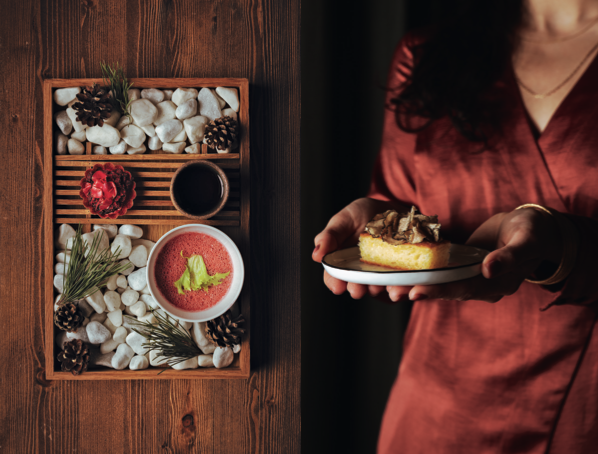
In the intimate Kreuzberg dining room of Horváth, Sebastian’s commitment to local, seasonal ingredients and daring techniques – whether born from accidents, memories or flashes of brilliance – challenges diners to see vegetables not as substitutes for meat but as the stars of the plate. His 12-course vegetarian tasting menu isn’t just fine dining; it’s a revelation. One of Sebastian’s most remarkable creations is his year-aged salt-baked celeriac, a dish that blends patience with innovation, showcased in his moodily lit restaurant like an otherworldly treasure encased in a gilded glass bell jar.
What began as an accident – leaving a salt-baked celeriac in the oven overnight – became a culinary marvel. Over many months of careful experimentation, Sebastian perfected the technique, turning the celeriac to refine its texture. The result rivals the savoury depth of truffles, with the aged root shaved finely to impart an almost Parmigiano Reggiano-like richness. Another standout, his oxidised salad, draws from a childhood memory of his mother’s soggy, day-old salad. Once dreaded, its wilted texture was reimagined decades later into a compressed, 24-hour-marinated lettuce dish that wryly subverts the form of rillette, finished with a camelina oil vinaigrette and a crumble of lemon zest and capers. Sebastian’s ability to turn
a negative food memory into a culinary masterpiece speaks to his gift for moving the ordinary into a higher realm.
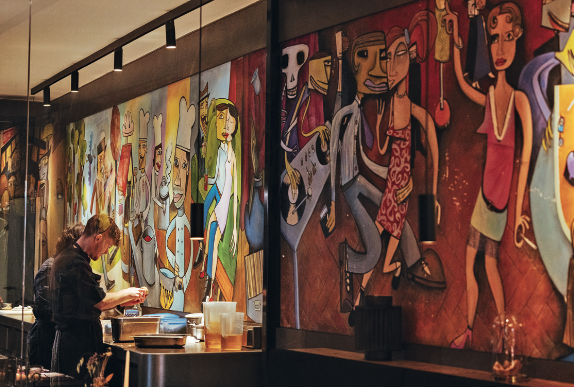
This spirit of transformation extends beyond Horváth. Across Berlin, chefs are reimagining plant-based cuisine in bold new ways. In the basement of Oukan, near Alexanderplatz, chef Timur Yilmaz and his team – including a dedicated fermentation chef – craft koji potions and smoky, fermented vegetables that lend their dishes bold, layered flavours. Timur, who trained at multi-starred kitchens like Frantzén in Stockholm and Pujol in Mexico City, has channelled his expertise into a vegan menu that is both innovative and refined. His approach – relying on fermentation and seasonal produce – challenges the limits of umami, proving it can be reached without animal protein. The menu draws heavily on Japanese culinary traditions, enhancing each ingredient’s natural essence.
Yet beyond the food, Oukan embodies a broader and more complex cultural exchange. Timur’s combination of Japanese techniques with a European sensibility underscores Berlin’s openness to global gastronomic influences. Here, culinary borders blur. A case in point: rhubarb with silken sweetgrass tofu, myoga (Japanese ginger) and candied green pistachios, offset by wood sorrel, coffee and lemon marigold oil. While the fresh ingredients are sourced locally from Berlin-Brandenburg, the sweetgrass comes from Poland, pistachios from Iran and myoga from Japan – an intricate balance of global and local elements. This interplay reaches its peak in Timur’s charcoal- grilled kohlrabi, dressed with fennel oil, rose powder and rose XO sauce, alongside a scoby cooked in rose tea and lacto- fermented koji sauce with aniseed-liquorice cream. Hidden within the kohlrabi rose are green celeriac stems, celeriac leaf oil, preserved tomatillos and hydrated almonds. This fusion of influences defines Berlin’s new wave of plant-based dining, where creativity flourishes in multiple forms.
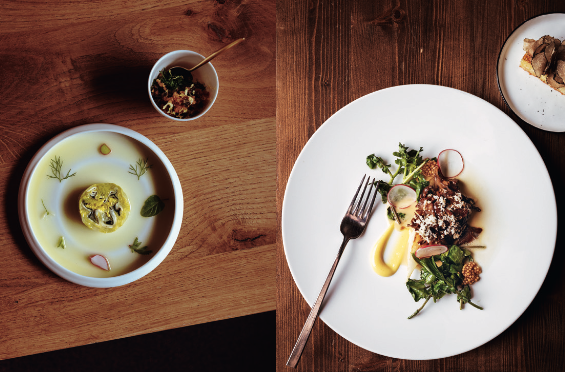
At Frea, in the heart of Mitte, Berlin’s bustling central district, the focus shifts from intricate compositions to a radical sustainability ethos. When it opened in 2019 as the world’s first fully zero-waste vegan restaurant, Frea set a new benchmark for conscious dining in the city and has since received recognition with the award of Berlin’s first Green Michelin star, for its commitment to sustainability as well as culinary innovation. It’s the brainchild of husband-and-wife duo Jasmin and David Johannes Suchy, alongside executive chef Lorenzo Mele; their philosophy extends beyond the pared-back main restaurant (complete with in-house composter) to their nearby bakery and café, where locals queue around the block for fresh sourdough, pastries and a brilliantly concise breakfast and lunch menu.
Here, overlooked ingredients and wonky offcuts – the kind many chefs would discard – are transformed into vibrant broths, rich sauces and completely plant-based triumphs. The menu, which is both entirely organic and locally sourced, features dishes such as cucumber aguachile and roasted coffee-glazed aubergine, showcasing the full potential of every ingredient while generating minimal waste. The atmosphere is buzzy, with diners vying for counter seats in order to get a front-row view of the kitchen in action.
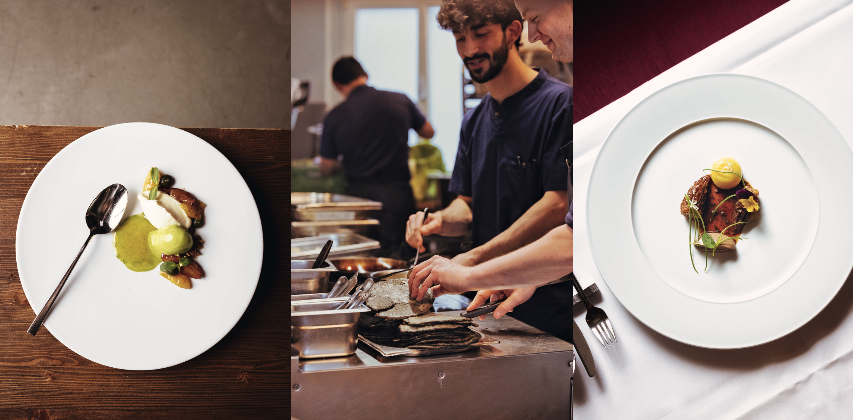
In contrast to Frea’s understated cool, Bonvivant Cocktail Bar & Restaurant is a lush, dynamic flash of colour. This Michelin-starred spot in Schöneberg sees chef Nikodemus Berger reclaim the barbecue grill for a plant-based menu that is both decadent and deeply rooted in Brandenburg’s agricultural heritage. True to its name, Bonvivant leans into indulgence, pairing inventive dishes with cocktails such as Juniper and Foam, indie skin-contact gewürztraminers and a thoughtful non-alcoholic range, making it a place where celebrations stretch long into the night.
From smoky beet tartare to sourdough bread, fried langos flatbreads and crackers served with beer brewed from leftover bread at a nearby brewery, sustainability is woven playfully into the experience. But it is the chef’s signature dish, Homage to the Homeland, that steals the show: a rich layering of fluffy cheese spätzle hidden beneath silky potato mash, crowned with truffle and crispy onions – this is the point where indulgence meets artistry.
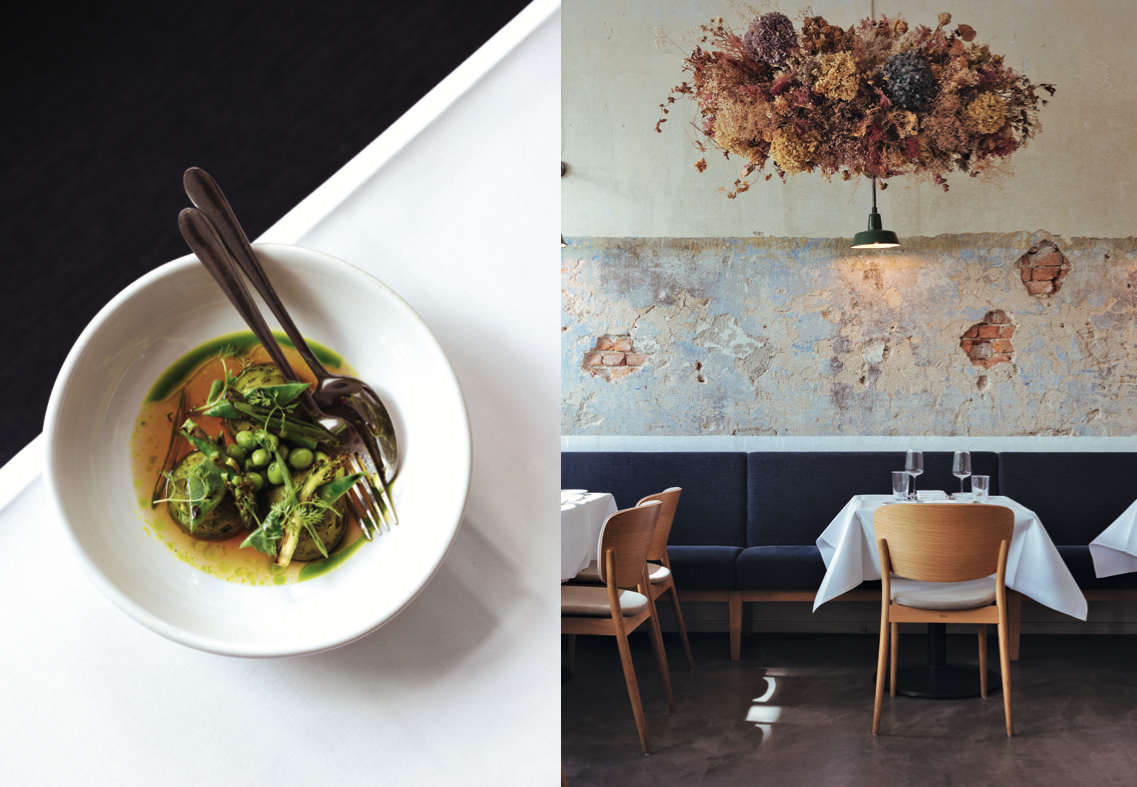
Meanwhile, back in Mitte, Cookies Cream has emerged as one of Berlin’s most iconic plant-based dining destinations. Hidden down an unassuming alley in a space once home to one of the city’s legendary nightclubs, locating it requires a sense of adventure. Founded by Heinz ‘Cookie’ Gindullis, the restaurant reflects his love for avant-garde aesthetics and intimate vibes. The speakeasy atmosphere, with its dim lighting and minimalist décor, speaks to the founder’s nightclub roots, which still shape the restaurant’s mood today.
As the city around it has evolved, so too has Cookies Cream, under the guidance of new head chef Nicholas Hahn. One of Nicholas’s signature dishes is a duo of kohlrabi rolls: one filled with the kohlrabi, the other with preserved tomatoes from the previous year served in a buttermilk vinaigrette with fresh wasabi and peas. This bold, visually striking dish, coupled with the restaurant’s cool, underground energy, offers a taste of Berlin’s unique culinary spirit.
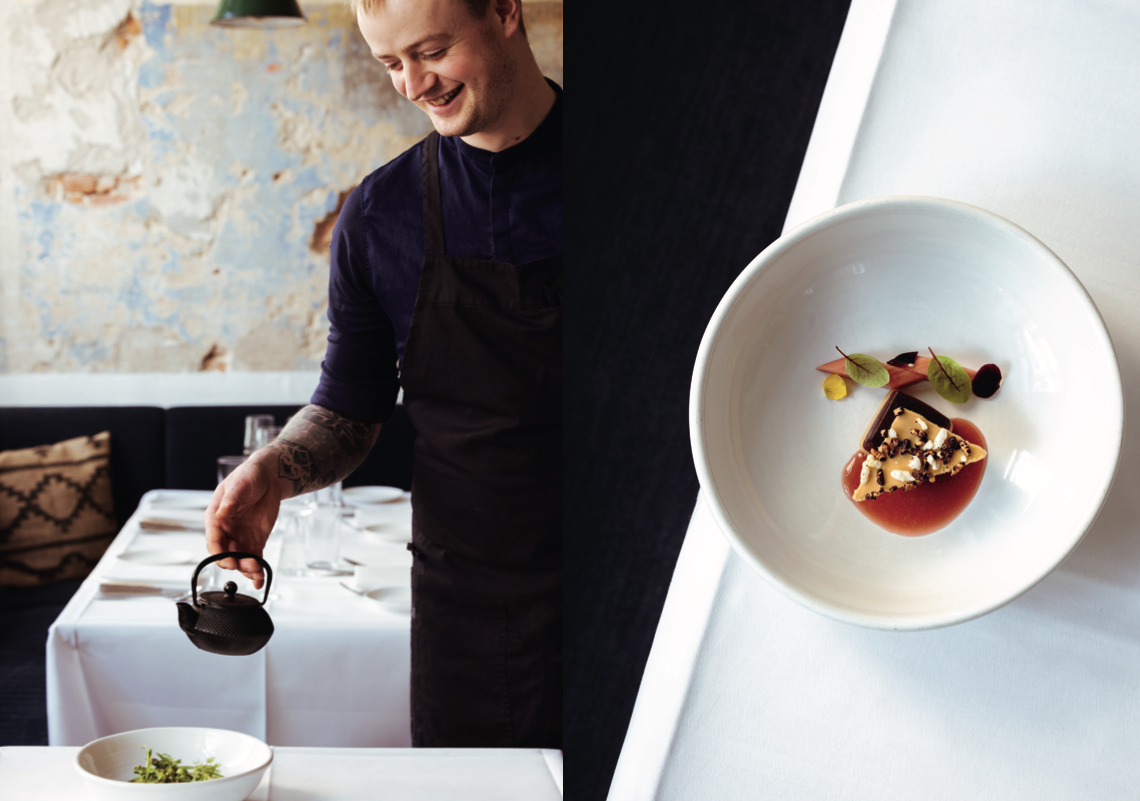
This creative energy extends beyond Berlin’s purely vegetarian and vegan venues. While they may be at the forefront of its plant-based revolution, the celebration of vegetables is increasingly evident across the wider dining scene. In traditionally meat-centric establishments, chefs are crafting plant-forward options that rival, if not surpass, their meatier counterparts. ‘It’s amazing for us – it creates a certain level of friendly competition, pushing each other to become better, and really putting Berlin on the map regarding vegetable cuisine,’ says Sebastian Frank, expressing admiration for the collective creativity and audacity of his peers.
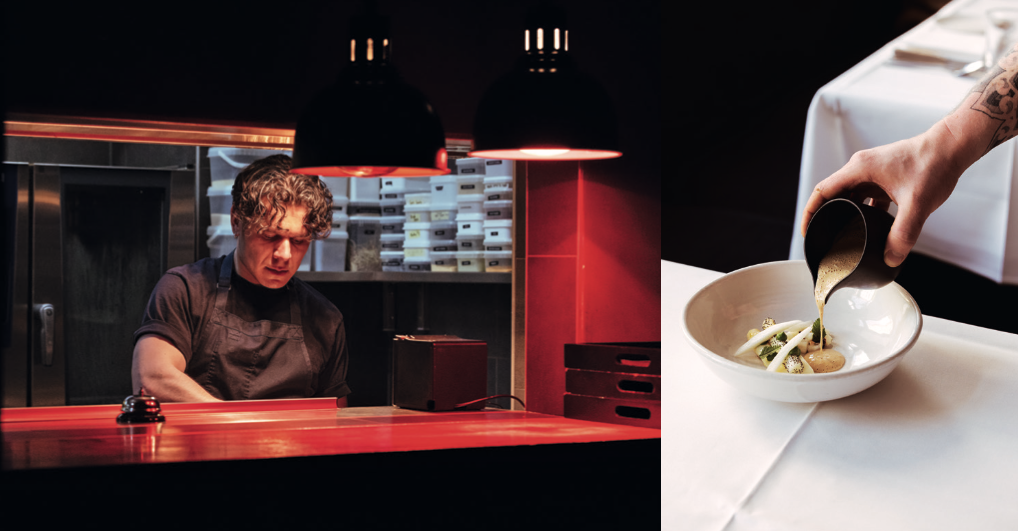
What’s unfolding in Berlin is not merely a trend – it’s a cultural shift. Here, plant-based eating is not just a menu option but a reflection of the city’s broader ethos: boundary-pushing, unapologetically bold and fuelled by relentless creative reinvention. Just as Berlin’s art studios and cultural spaces thrive on the interplay of gritty street culture and high art, so too does its culinary scene. The city’s sustainable food renaissance is rewriting the rules of gastronomy for the future, with vegetables at its core. And, in Berlin, that future is already here.
Where to stay
Château Royal Berlin A stylish boutique hotel in Mitte serving modern Mediterranean cuisine with plant-based options, all in a central location near Berlin’s top attractions. Doubles from £203. Neustädtische Kirchstraße 3, +49 (0)30 2345 6770, chateauroyalberlin.com
Michelberger Hotel This hotel in Friedrichshain is known for organic, plant-based dining options sourced from its biodynamic farm. Great wine and a summer terrace featuring live music. Doubles from £72.Warschauer Straße 39-40, +49 (0)30 2977 8590, michelbergerhotel.com
Orania.Berlin A hotel in Kreuzberg with elegant rooms reflecting the area’s vibrant cultural scene, and a restaurant that combines local ingredients with international influences. Doubles from £149. Oranienplatz 17, +49 (0)30 6953 9680, orania.berlin
Provocateur Berlin 1920s Parisian elegance meets Berlin’s edgy vibe at this Charlottenburg hotel. Its restaurant specialises in Franco-Asian cuisine. Doubles from £89. Brandenburgische Straße 21, +49 (0)30 2205 6060, provocateur-hotel.com
SO/Berlin Das Stue This luxury hotel by the Tiergarten blends historic charm with modern design. Its restaurant, The Casual, includes plant- based options, with a terrace overlooking the zoo. Doubles from £240. Drakestraße 1, +49 (0)30 311 7220, so-berlin-das-stue.com
Travel Information
Berlin, Germany’s capital in the northeast, is a city where history and modernity intertwine. Landmarks such as the Berlin Wall’s East Side Gallery and the Holocaust Memorial stand as poignant reminders of its complex past. Direct flights to Berlin Brandenburg Airport are available from various UK airports. Time is Central European Standard Time (GMT+1) and the local currency is the Euro.
GETTING THERE
Ryanair offers daily flights from London Stansted. ryanair.com
EasyJet operates daily flights from London Gatwick and Stansted, as well as several flights per week from Luton and Manchester. easyjet.com
GETTING AROUND
Public transport is reliable, including the U-Bahn (underground), S-Bahn (suburban rail), trams and buses. berlin.de/en/public-transportation
RESOURCES
Berlin.de is the city’s official portal offering extensive information to help you plan your visit. berlin.de/en/tourism
Visit Berlin provides comprehensive details on museums, restaurants and must-see landmarks. visitberlin.de/en
Where to eat
Bonvivant Cocktail Bar & Restaurant Playful yet polished, Bonvivant blends inventive vegetarian cuisine with masterful cocktails in a vibrant Schöneberg setting. Five-course menu £103, excluding drinks. Goltzstraße 32, +49 (0)176 6172 2602, bonvivant.berlin
Cookies Cream Fine-dining vegetarian trailblazer delivering bold flavours in an industrial-chic hideaway. Four-course tasting menu £74, excluding drinks. Behrenstraße 55, +49 (0)30 6807 30448, cookiescream.com
FreaThis pioneering zero-waste restaurant turns plant-based dining into a bold, sustainable statement. Five-course menu £62, excluding drinks. Torstraße 180, frea.de
HorváthTwo-Michelin-starred traditional Austrian cuisine with modern finesse on Kreuzberg’s canal. Seven-course tasting menu £120, excluding drinks. Paul-Lincke-Ufer 44a, +49 (0)30 6128 9992, restaurant-horvath.de
Oukan This sleek, meditative haven in Mitte redefines vegan fine dining with Japanese-inspired precision and depth. Eight-course menu £83 excluding drinks. Ackerstraße 144, +49 (0)30 5477 4716, oukan.de
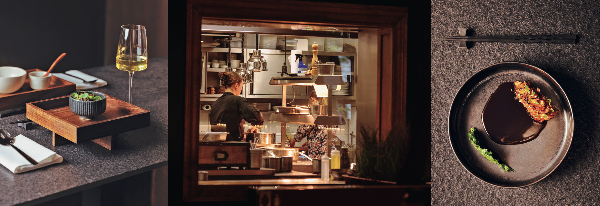
Food Glossary
Get Premium access to all the latest content online
Subscribe and view full print editions online... Subscribe

